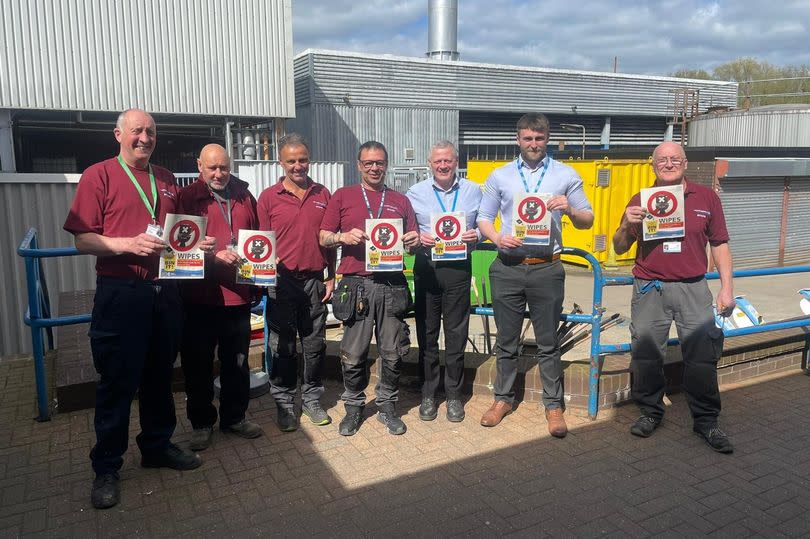Lancashire Teaching Hospitals left with £90k bill after 1,000 toilet blockages in six months

Patients and visitors at the Royal Preston and Chorley and South Ribble hospitals are being urged not to flush wet wipes, nappies or personal hygiene products down the public toilets at the two sites. It comes after more than 1,000 blockages were caused by the practice in the space of just six months.
Some of the incidents have been so severe that they have led to water flooding out onto corridors and even into some wards – posing a potential health hazard. The Local Democracy Reporting Service (LDRS) understands that the cost of the clean-ups required as a result of wet wipe blockages alone is estimated to be £90,000 since last October.
However, the problem also comes at a price in terms of patient comfort and convenience. That's because access to bathroom areas limited for extended periods of time on affected wards.
READ MORE:
Update on long-awaited 'reopening' of Preston Guild Hall after five-year wait
All the Lancashire local election results 2024 in full borough-by-borough
Lancashire Teaching Hospitals NHS Foundation Trust (LTH), which runs the two sites, has teamed up with North West water company United Utilities. They are jointly appealing for people using the hospitals’ facilities to flush only toilet roll and their own bodily waste – or “pee, poo and paper” – down the pan.
The problem is particularly prevalent at the Royal Preston, where the LDRS understands the situation is exacerbated by the age of the hospital estate. Although the likes of wipes and nappies should never be flushed down domestic toilets either, the condition of some of the facilities at the Sharoe Green Lane site makes them even less likely to cope.
Cliff Howell, LTH’s director of estates and facilities, said the trust has seen “a huge increase in floods in toilet and bathroom areas caused by pipes that have become blocked because of unsuitable products being flushed down the loo”.
“As many of the toilets are small spaces, it isn’t unusual for the blockage to cause flooding in corridors or even hospital wards. Not only are these incidents inconvenient for patients and staff when bathroom facilities are out of action, they also pose a health risk for users and the maintenance team who have to clean [them] up.
“These incidents are time-consuming [and] expensive – but they’re also avoidable. We have a simple request – and that is for everyone using our toilet facilities to please use waste bins to dispose of any personal hygiene products, such as wet wipes, and only flush pee, poo and paper down the loo,” Mr. Howell added.
United Utilities is currently running its ‘Stop the Block’ campaign, which encourages people to flush nothing but “the three Ps” down toilets – whether public facilities or in their own homes.
Andy Peet, the firm’s wastewater network protection manager, said: “We know all too well the problems that are caused on our sewer network when wet wipes and other personal hygiene products are flushed. Even though some wet wipes are labelled as biodegradable, they don’t disintegrate like toilet paper does.
"This means they can build up until the pipe is blocked and nothing can pass through it. This can cause flooding in customers’ homes, [the] local community or out in the environment,” Mr. Peet warned.
More than 70% of the Royal Preston’s clinical facilities were built between the 1970s and 1990s – and it was estimated three years ago that clearing the hospital’s maintenance backlog would cost £157m. That assessment was made as part of the NHS’ pitch for government cash to build a replacement facility.
That bid succeeded last year, but a new Royal Preston – in a new location – is not expected to open for around a decade. In the meantime, the trust has committed to making “appropriate” levels of investment in the current site.

 Yahoo News
Yahoo News 
